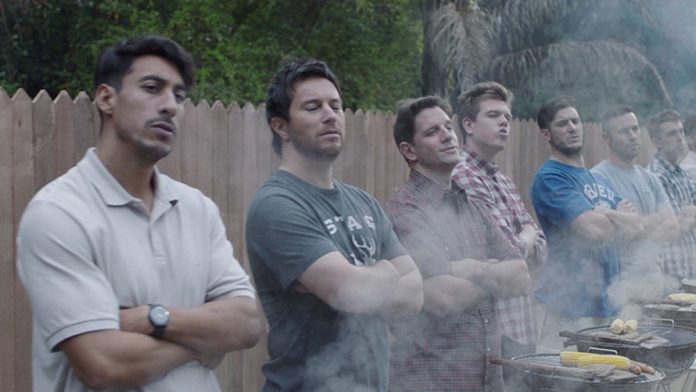For three decades, Gillette promised its customers “The Best a Man Can Get.”
An individual. Acquisitive. Assertive. And always clean-shaven.
This was the vision of masculinity depicted in an ad campaign that debuted in January 1989 during Super Bowl XXIII. The early days of the George H.W. Bush administration and the end stage of the Cold War, it was the year of “Indiana Jones and the Last Crusade.” Promoting Gillette’s top-of-the-line Atra razor, the 60-second spot portrayed variations on a single theme: a white man scoring, whether at the office, on an athletic field or with a woman. The one specific location it invoked was Wall Street, the arena of the ultimate alpha male.
Now, Procter & Gamble, the maker of Gillette, is out with a new ad, “We Believe,” that challenges the image of masculinity it once promoted. The consumer goods company, whose net sales totaled $66.8 billion last year, has ignited a debate about gender and cultural branding, as well as about the power exercised by multinational corporations in shaping evolving ideas about family and relationships in the #MeToo era.
“Bullying. The #MeToo movement. Toxic masculinity.” The headlines resound as men – black and white, young and old – peer at themselves in the mirror. “Is this the best a man can get?” asks the narrator of the ad, released Sunday on YouTube and shared Monday on Twitter. The scenes that unfold suggest that the answer is no, and point to a new mantra: “The Best Men Can Be.”
The new Gillette men are a community, concerned more about who they are than about what they can acquire.
But some men want out of that community. Piers Morgan, the TV presenter, blasted the ad, writing, “This absurd virtue-signalling PC guff may drive me away to a company less eager to fuel the current pathetic global assault on masculinity.”
The nearly two-minute spot, created by the New York-based advertising agency Grey and directed by Kim Gehrig of Britain-based production agency Somesuch, represents the latest corporate foray into the culture wars. Last year, Nike stock soared after it unveiled a September advertising campaign featuring Colin Kaepernick, the NFL star whose protest of police violence drew the ire of conservatives who decried his decision to kneel during the national anthem.
Just as the decision by the footwear and apparel company led Kaepernick’s critics to burn their Nike gear, the approach by Procter & Gamble incensed many viewers, but none more so than men’s rights activists who vowed to “#BoycottGillette.” Christina Sommers, a scholar at the American Enterprise Institute who coined the term “victim feminism,” blamed a familiar boogeyman: the campus left.
The ad was called “hideously woke.” Some found it “smarmy” and “condescending.” By early Tuesday, the video had about 223,000 downvotes on YouTube, compared with about 25,000 favorable reactions. On Twitter, the video had drawn about 70,000 likes and 19,000 comments by early Tuesday.
Meanwhile, even some who praised the company’s intentions warned that the ad unwittingly reinforced the idea that bad behavior is normal because all men take part in it.
The fierce reactions may bode well for the success of the message, said Robert Kozinets, a scholar of marketing and consumer culture at the University of Southern California’s Annenberg School for Communication and Journalism.
“Advertisers, when they’re lucky and smart, are able to tap into something that’s part of the popular consciousness,” Kozinets said in an interview with The Washington Post. Procter & Gamble is hitching its wagon to the #MeToo movement, he said, and rebranding to fit a “moral narrative with a lot of energy behind it.”
The video was accompanied by a pledge to donate $1 million per year for the next three years to a nonprofit working in the United States to help men “achieve their personal ‘best,’ ” according to a news release from Gillette. Its original slogan, the company said, was aspirational. “But turn on the news today and it’s easy to believe that men are not at their best,” the release noted. The first recipient of the funds will be the Boys & Girls Clubs of America, according to Adweek.
While picking sides on a divisive issue could be seen as a threat to the company’s bottom line, Kozinets said, most advertising is a quest not to be forgotten, which means even negative feedback can be productive.













